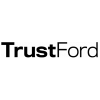
Don’t be a victim of common car scams!
At Desperateseller.co.uk, we specialise in selling cars - we pride ourselves on our reputation for helping people find used vehicles which are superb value for money. We also know that, with so many scammers around, car buying can be a risky business. That's why, from time to time, we like to remind our readers of some of the more common scams around. The last time we did this, though, was over a year ago. And, as few things move faster than the world of scamming we thought we’d re-visit the topic and update you on some of the common cons around today.
‘DVLA’ scam
The power of officialdom should never be underestimated. Certainly, many scammers don't underestimate it. They know that the instinct of many - if not most – people is to trust it. That's why so many fraudsters pose as the DVLA, or someone writing from GOV.uk, offering car tax refunds – all that recipient has to do is click a link and provide some personal information. The scammers know that, so long as they can look convincing, many people will take the bait. They then use the info provided by the victim (which includes banking details) to extort money or for identity theft. It’s worth noting that the DVLA’s official position is that they “…don’t send emails or text messages with links to websites asking you to confirm your personal details or payment information˜. So, if you get a message asking you to do so – delete it immediately!
Ghost brokers
What’s a ghost broker? They’re scammers, posing as legit insurance brokers, who target anyone likely to be short of cash, such as students and young drivers, by offering deals that really are too good to be true. Usually targeting victims using social media, ghost brokers can trick their victims in several ways. They might forge entire insurance documents, for example, or change a driver’s details (age, occupation etc.) to reduce the price of the policy significantly. This may reduce the premium, but - because it’s incorrect information - it invalidates the policy. Another ghost broking tactic is for the so-called broker to set up a genuine policy, only to cancel it later, reclaiming the refund for themselves and leaving the victim completely unaware that they’re no longer covered. How can you spot a ghost broker? There’s no magic bullet – the best way is probably to trust your instincts and bear in mind the usually-true expression ‘if it sounds too good to be true, then it probably is.’
Car cloning
Sometimes known as vehicle identity theft, Car cloning is growing in popularity amongst fraudsters. In fact, there was a 50% rise in reported cloning incidents between 2017 and 2019. What is it? It’s where criminals either steal the plates off a legally registered vehicle, or (more typically) have fake plates illegally produced, then attach them to a stolen vehicle and sell it. What makes this crime so scary – and so effective – is that it’s not always easy to spot a clone. However, if a car’s being sold without V5C registration documents or service history, that’s a definite red flag, as is an exceptionally low price. But the best thing to do, when purchasing a car, is to ask for the registration number, make, model, and MOT test number. You can then check online to see if the details you’ve been given match DVLA information.
Clocking
You may think that this scam is too old to fool anyone, these days, but – in fact – the opposite is true. In recent years, there’s been an increase, if anything, in car clocking. And it’s no wonder, given that the average car could see a price rise of up to £4,000 through clocking alone, and that it's much trickier to spot the signs of odometer tampering in modern cars. So, how can you avoid falling victim to this particular scam? Well, first you can check a car’s total mileage by searching for its MOT test history online before purchasing. You should also trust your intuition – if there’s seems to be a mismatch between the general condition of the vehicle and its apparent mileage, think twice before buying.
These, of course, are far from the only scams around. There’s no way (that we know of) you can 100% guarantee you won’t fall victim to one of them, but you’re likely to stay pretty safe if you follow the following general rules:
1. When buying online, if it sounds too good to be true, it probably is.
2. Ask the seller for the registration number, make and model of the car before you meet them and run these through the DVLA’s free, online vehicle enquiry service.
3. When inspecting the car, make sure all the VINs (vehicle identity numbers) match each other and those in the V5C logbook.
4. Watch out for unexpected contact from anyone claiming to be from the DVLA or an insurer - never click any links or call any numbers from suspicious emails.
One thing which certainly isn't a scam is the Desperateseller.co.uk our used car section. You'll find - literally - thousands of great bargains there ranging from a Renault Clio to a Jaguar XF.













